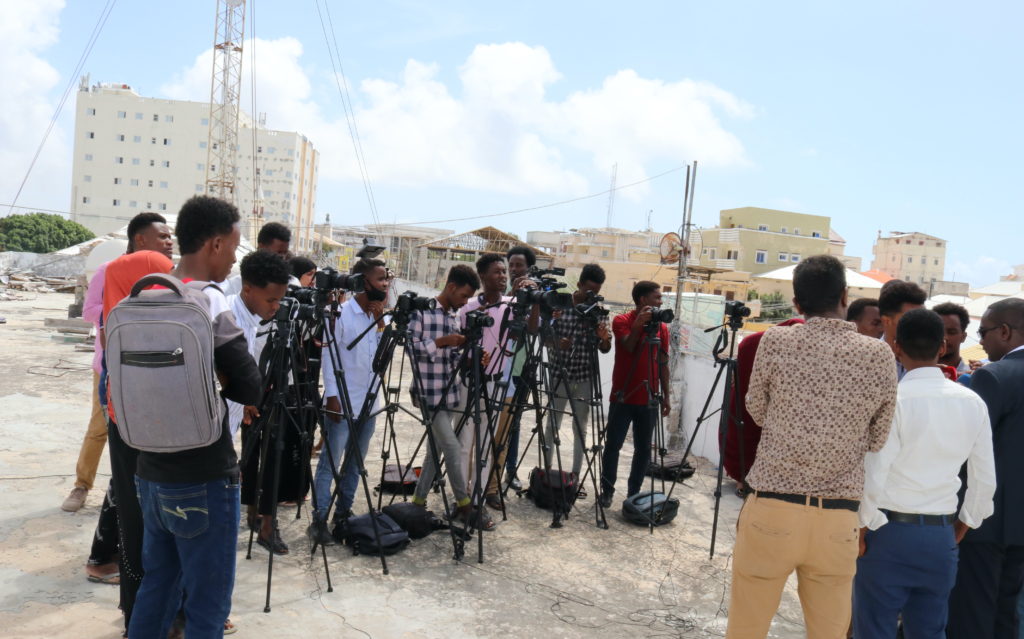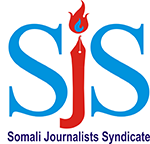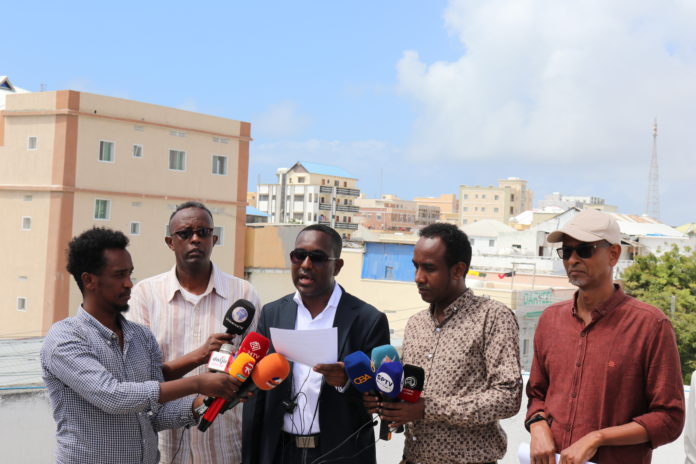MOGADISHU, Somalia 10 October 2022 – The Somali media fraternity and the journalists’ associations* are concerned about the new directive issued by the Somali Federal Government containing a blanket ban and suspension on what it calls “dissemination of extremist and terrorist ideology”.
On Saturday 08 October, the Ministry of Information of the Federal Government of Somalia issued a directive which “prohibited dissemination of extremism ideology messages both from traditional media broadcasts and social media. Similarly, the Ministry of Posts and Telecommunication instructed internet service providers to suspend more than 40 online sites without clarifying the identity of those sites.

While we recognize that the ongoing fighting between the federal government forces and al-Shabaab may have triggered a persisting concern relating the use of social media for propaganda purposes, we are concerned that the new measures within the government directive, which was not consulted with media stakeholders, might unduly restrict otherwise legitimate expression and press freedom in the country.
Firstly, the vaguely-worded directive might limit the ability of journalists to freely report the ongoing operations against the armed group. It might also restrict access to information relating to the ongoing security operations from the general public. For example, following the Saturday’s directive Shabelle Media was on Sunday forced to remove al-Shabaab’s reaction to the government directive from its social media. Several other journalists told us they were unable to share information out of fear of reprisal from the authorities.
Secondly, the blanket suspension and ban on both media outlets and social media platforms allegedly for spreading al-Shabaab related information is worrying and is restrictive in nature. For instance, the government directive suspended Telegram, which is a cloud-based encrypted instant messaging platform used by many Somalis for sharing information. The complete shutdown of Telegram in the country not only impacts many ordinary Somalis but puts into question the purpose of this restriction.
Thirdly, we are concerned that the new directive might be used to silence the legitimate critics of the government and its security forces including journalists, human rights defenders, independent researchers, analysts and others.
Lastly, we are extremely alarmed that the new directive already brought security concerns for some local journalists and media houses following a counter-directive issued by al-Shabaab on Sunday threatening journalists and other entities that implement the government directive.
Article 18 of the Somali Federal Provisional Constitution guarantees the right to Freedom of Expression and Opinions while Article 32 stipulates the Right of Access to Information. Meanwhile, Article 38 of the Constitution prohibits any rights limitations, including the right to freedom of expression, without demonstrably reasonable, lawful, justified and fair manner.
Under the international law, the exercise of the right to freedom of expression may be subject to certain restrictions but only if they meet all elements of a stringent three-part test: they must be provided by law (which must be formulated with sufficient precision to enable an individual to regulate their conduct accordingly); and demonstrably necessary and proportionate (the least restrictive measure to achieve the specified purpose) for the purpose of protecting specified public interests (national security, public order, or public health or morals) or the rights or reputations of others. There must be procedural safeguards against abusive imposition of restrictions, including provision for appeal to an independent body with some form of judicial review. Restrictions which do not comply with this test violate freedom of expression even where no penalty results. They violate not only the right to freedom of expression of those people on whom the restriction is imposed, but also the right of others to receive information and ideas.
The Johannesburg Principles on National Security, Freedom of Expression and Access to Information adopted on 1 October 1995 by a group of experts in international law, national security, and human rights, contains principles aimed at resolving the tension between the right to freedom expression vis-à-vis national security. It states that “governments must use the least restrictive means possible in prohibiting speech that is contrary to legitimate national security interests; a restriction sought to be justified on the ground of national security is not legitimate if its genuine purpose or demonstrable effect is to protect interests unrelated to national security, including, for example, to protect a government from embarrassment or exposure of wrongdoing, or to conceal information about the functioning of its public institutions, or to entrench a particular ideology.
We call for the Ministry of Information of the Federal Government to review its directive and ensure that the rights of journalists and the freedom of media is not unduly restricted.
We call for the government to ensure that freedom of expression, media freedom and the rights of journalists is respected, protected and promoted.
The government should not criminalize journalistic reporting and the work of journalists. Instead, we encourage the government to review and amend the 2020 Somali Media Law which contains provisions that criminalize and restrict journalistic work and allow media stakeholders to participate in the review process.
*Signed by:
- Somalia Mechanism for Safety of Journalists (SMSJ)
- Somali Journalists Syndicate (SJS)
- Federation of Somali Journalists (FESOJ)
- Somali Media Association (SOMA)
- Somali Independent Media Houses Association (SIMHA)


